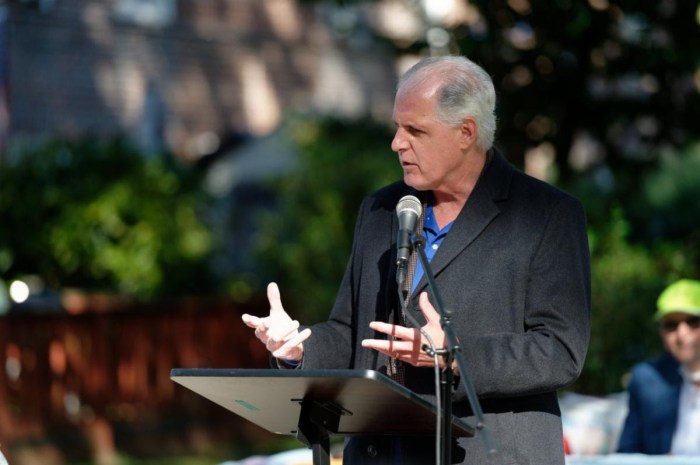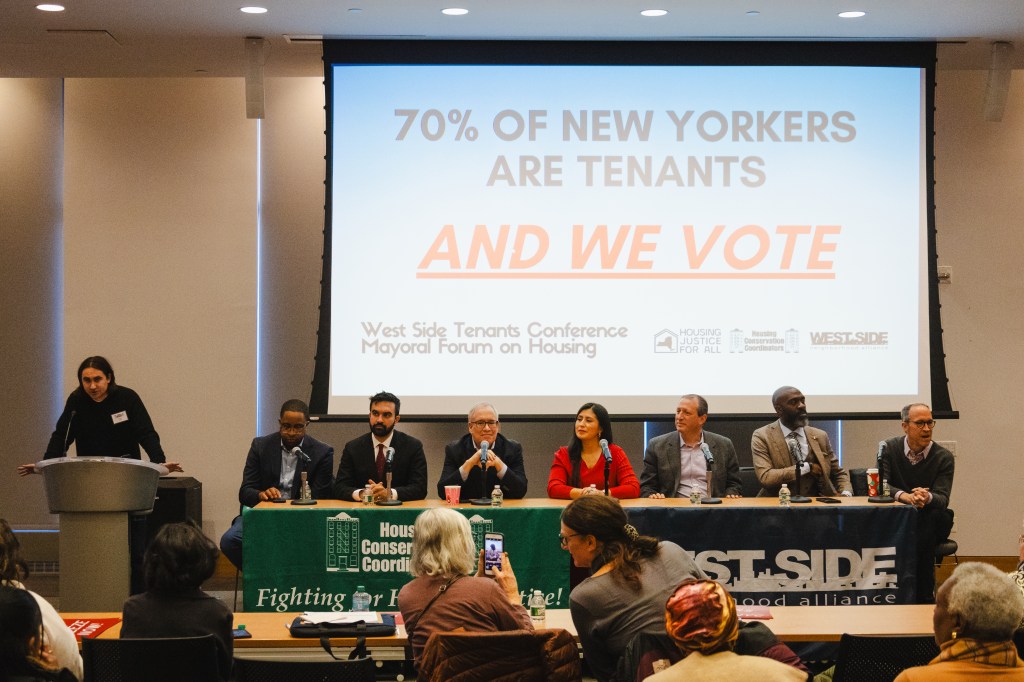By Cat Cutillo
The dog was still alive.
“I was crying. Me and my friend took the dog to a vet and he lived for eight days. He had a broken back and two broken legs. At first we thought we could save him,” said the Ozone Park resident.
The experience motivated Giordano to devote her life to animal rescue. She opened Bobbi and the Strays at the JFK Vet Port about seven years ago and then in 2007 the Shops at Atlas Park in Glendale donated a second space. Giordano now oversees both locations.
“Two years ago we spent $60,000 in medical expenses on animals hit by cars, losing eyes, getting legs amputated, and we have every last bill to prove it,” said Giordano.
As with many no-kill animal shelters, money restraints continue to prevent rescuers in Queens from helping more animals.
Boris Niyazov has run the Animal Center of Queens, a no-kill shelter in Rego Park, for the last 3½ years. Niyazov said every other week his shelter takes in three to four animals facing euthanization at another city shelter. Many animals are left on the doorstep in a paper bag, while some are found on the streets by rescue teams working in conjunction with the shelter. Others are even brought in by their owners who no longer want or have the ability to keep them.
Last summer during the flooding brought on by heavy rainstorms, Niyazov said the shelter's basement was filled with four feet of water and the first floor, where the animals are kept, was covered in a foot. The shelter is located at 89-10 Eliot Ave. in Rego Park.
“We called DEP [the Department of Environmental Protection] and the Fire Department and we didn't get that great a response. They just said, 'Call a plumber.' We lost a lot of food and equipment. Since then, we have not been able to replace the equipment,” said Niyazov.
Niyazov began rescuing animals while working as a dog trainer both in Russia, where he grew up, and in Queens, where he has lived since 1989.
“You feel kind of left behind because the city should probably do more to keep a place like [this] open and they need to open more places like [this]. If we're not here, the 800 animals we've saved might have been euthanized,” he said.
Since 2002, more than 106,000 dogs and cats have been euthanized in New York City according to Councilman Eric Gioia (D-Sunnyside).
The city has set aside nearly $5.9 million to build a new Queens animal shelter which will euthanize, although the shelter has not been constructed.
The Animal Center of Queens said it receives very little city funding and relies predominantly on private donations of money and blankets as well as volunteer support. Joseph Dado of Middle Village volunteered at the shelter for the past two years.
“I just love animals. I actually quit my job so I could start spending more time here,” said Dado, who previously held a corporate job in the database field.
Dado now volunteers at the shelter four days a week, helping out with everything from maintaining its Web site, transporting animals, helping with adoptions, walking dogs and being a foster parent.
“We get animals because people move and they leave their animals behind or because people tie them to a lamp post. But nobody seems to do anything about that. People treat their animals like property,” said Dado.
All too often animals arrive at the shelters having been treated far worse than property.
One of the newest additions to Bobbi and The Strays is a 4-month-old puppy, found with a huge open sore on its back that sparked a fever. The puppy was rushed to the animal hospital. The veterinarians shaved its fur to inspect the wound and discovered numerous scars left from cigarette burns.
“We knew there was abuse. but we didn't know how much damage there was,” said Giordano.
She said the wound probably was caused by either a hot pipe or hot water that scorched the puppy's flesh.
“I never saw anything like it in my life on an animal or human,” said Patti Mazzullo, who has volunteered at Bobbi and The Strays for three years.
Maya Robinson, manager of Animal Haven in Flushing, has also witnessed the terrible conditions some animals are in when they arrive at her shelter.
A Maltese named Pepe has been living at Animal Haven since January after someone found him on the street.
“Pepe was in really bad shape when he came to us. His fur was matted to his body and his jaw was basically rotting. So we took him to the vet and they took out 29 teeth,” said Robinson.
Aside from dogs, Animal Haven currently provides a home for some 250 cats. Of those, approximately 20 have FIV, the feline form of HIV, another 20 have leukemia and about 15 are non-adoptable feral cats. Every cat is tested for diseases when it arrives at the shelter, then spayed or neutered. The shelter is located at 35-22 Prince St. in Flushing.
Animal Haven also relies on volunteers like Joan Recco of Whitestone, a “cat socializer,” who has been coming in once a week for two years.
“I try to make them less nervous so they get used to humans,” said Recco. “It's a comfort. They're my favorite animals.”
Still, every shelter has a maximum capacity and Animal Haven has reached its with cats. They currently cannot accept any cats until some are adopted to create more space within the shelter.
“We name every single one of them. They might not be very good names but we name them all,” said Robinson.
Reach reporter/photographer Cat Cutillo by e-mail at ccutillo@timesledger.com or by phone at 718-229-0300, Ext. 189.

































